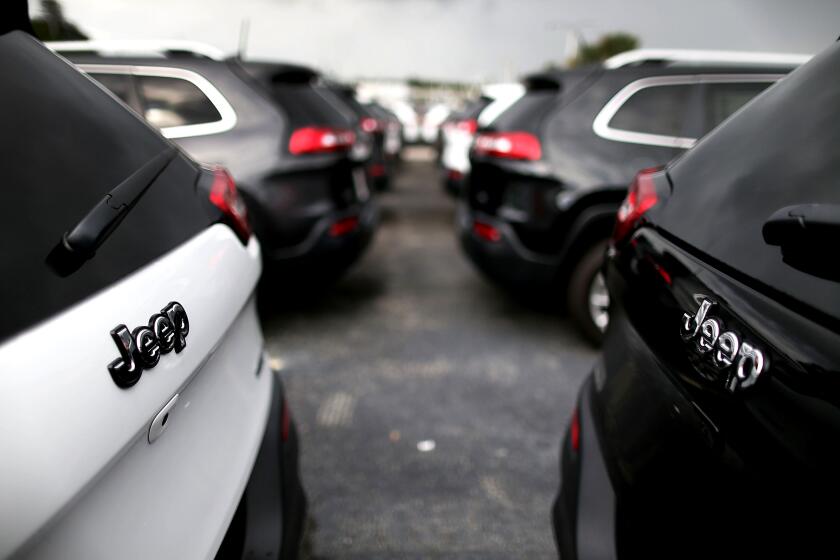Goldman agrees to settle fraud case with SEC, will pay $550 million
WASHINGTON -- The government on Thursday settled its sweeping civil fraud case against Goldman Sachs & Co., the Wall Street banking giant that came to exemplify the financial-market meltdown that helped plunge the country into the worst recession in a generation.
Under the terms of the agreement, Goldman will pay $550 million, the largest fine ever imposed on a Wall Street firm.
In April, the Securities and Exchange Commission accused Goldman of, in a sense, simultaneously betting both on the viability of the soaring housing market and on its collapse. The SEC said Goldman sold subprime mortgage-related securities to investors without disclosing that the securities had been designed in part by a Goldman client that was betting on their failure. Bank executives denied any wrongdoing.
“Today’s settlement sends positive message of deterrence and accountability,” said the SEC’s director of enforcement, Robert Khuzami.
But even though it was a record fine, the penalty represents only a fraction of Goldman’s annual earnings. The firm posted a profit of $13.3 billion in 2009.
Goldman shares jumped $6.16 to $145.22 in the final half hour of trading as the rumor of a settlement spread. The broader market also got a lift, with the Dow industrials closing off fractionally after being down about 95 points.
Of the $550 million the firm will pay, $250 million will go to investors who were financially harmed and $300 million will go to the Treasury.
Ironically, the deal was made public on the same day the Senate passed a comprehensive financial regulation bill intended to restrict the very practices that Goldman and other banks employed to collected billions in profits. The financial reform bill now heads to the White House for President Obama’s signature. SEC officials denied the timing of the announcement was a consideration.
Goldman did not admit any wrongdoing as part of the deal--such a blanket admission could harm it with regards to other lawsuits brought by investors--but conceded that its marketing materials had been incomplete. The bank acknowledged “the fundamental basis of our complaint,” Khuzami said. Goldman also agreed to implement a series of internal controls to tighten its business practices.
The settlement, which still must be approved by a New York federal judge, does not affect the SEC’s ongoing suit against Goldman vice president Fabrice Tourre, and the bank has agreed to cooperate with the agency with regard to that litigation.
In the Tourre suit, the SEC alleged that Paulson & Co., one of the world’s biggest hedge funds, paid Goldman $15 million in April 2007 to structure a so-called collateralized debt obligation, or CDO, that Paulson could then bet against via the use of credit default swaps.
The agency said that Goldman had “failed to disclose to investors vital information about the CDO . . . particularly the role that hedge fund Paulson & Co. played in the portfolio selection process and the fact that Paulson had taken a short position against the CDO.”
Paulson, led by former Bear Stearns banker John Paulson, was one of the biggest beneficiaries of the housing meltdown because the firm concluded early on that the market was headed for collapse, and figured out ways to profit from that catastrophe.
More to Read
Inside the business of entertainment
The Wide Shot brings you news, analysis and insights on everything from streaming wars to production — and what it all means for the future.
You may occasionally receive promotional content from the Los Angeles Times.










